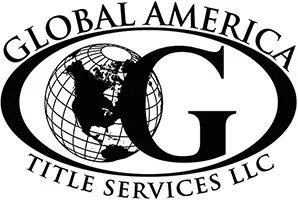Real Estate Purchase Checklist
1. Learn about the types of loans available
The kind of mortgage you choose has a big impact on how much you end up paying, including how much you’ll have to pay upfront, your monthly payment amount and the total cost of your loan over time. It also affects the level of risk you take on.
Knowing what kind of loan is most appropriate for your situation prepares you for talking to lenders and getting the best deal.
2. Get Pre-Approved
Most first-time buyers need to finance their home purchase, and a consultation with a mortgage lender is a crucial step in the process. Find out how much you can afford before you begin your home search.
Also ask your loan officer and Realtor about special financing such as FHA, USDA, VA and down-payment programs like First-time Homebuyer that might be available in your area. You might need to do some research but it can pay off in saving you thousands of dollars over the course of a 30 year mortgage.
3. Find a Property
Websites like Realtor.com contain the most up-to-date listings and will give you a head start on learning what homes are available in your price range and in what areas. Educating yourself about the area in where you wish to buy can help you narrow your priorities and make an informed decision about which home to choose.
Experienced Realtors are also recommended to help you find quality homes within your budget. They can also print sources that provide information on homes for sale and be your advocate in negotiations by suggesting tips to get you the best deal.
4. Make an Offer
A proposal to buy a property includes both the price and terms. In a typical situation, you will complete an offer sheet that your Realtor or real estate agent will present to the owner and the owner’s agent. The owner may accept the offer, reject it or reject it but make a counter-offer. This is often one of the most exciting and nerve wrenching parts of the homebuying process!
5. Sign a Purchase Agreement
Having the seller accept your offer is a great feeling. After your offer is accepted, you will sign the purchase agreement, which is an agreement containing all the details of the purchase. While not required, you may want an attorney to review.
6. Get Financing
The cost of financing your home purchase is usually greater than the price of the home itself after interest, closing costs and taxes are added. After comparing loan options and selecting the best option for you, the next step is to tell the loan officer you want to proceed with that mortgage application. This is called expressing your intent to proceed. Lenders have to wait until you express your intent to proceed before they require you to pay an application fee, appraisal fee, or most other fees. They’ll also require a lot of personal information from you such as proof of employment, bank statements, pay stubs, and tax returns. Be prompt, kind and patient in getting them the information they request. They must perform due diligence in order to loan you a large amount of money to ensure you’ll be able to pay them back.
7. Get Title Insurance
Even a parking ticket or a late water bill issued to the previous owner of your home can complicate the process of purchasing a home. Protecting your largest financial investment for a one-time fee of an owner’s title insurance policy provides coverage and peace of mind for as long as you own your home.
8. Prepare for Closing
Ask your title agent questions such as “What do I need to bring to closing?” “How much money do I need to bring and what forms of payment do you accept?” as your closing day approaches.Common documents are picture ID (such as a driver’s license or passport) and payment. Also, the title agent should provide you with a 5 page Closing Disclosure at least 3 days prior to closing by law.
9. Close on the Property
Once you’ve decided to move forward with the purchase of your home and have funding in place, you are ready to shop for the closing agent who gathers all the legal documents, closes the loan and handles the money involved in your purchase. In most of the country, a title or settlement agent handles your closing. In other states, particularly states in the West, the person is called an escrow agent. In other states, particularly in the Northeast and South, an attorney may be required.
During the closing, or settlement as it may be called in your area, you will sign many documents. Some key documents that you will sign include:
- The Closing Disclosure they issued to you at least 3 days prior. This document contains the terms and costs of your purchase.
- A Promissory note states that you promise to repay the loan/mortgage and includes the amount you owe, interest rate, payment dates, length of time, where payments are to be sent and consequences of failing to make your payments on time.
- A Deed of trust, or Security Instrument, transfers legal ownership of the property and enables the lender to foreclose on the property if you fail to repay your loan.

